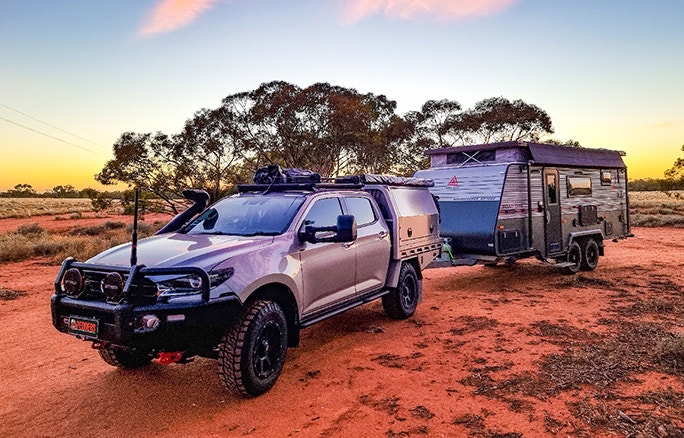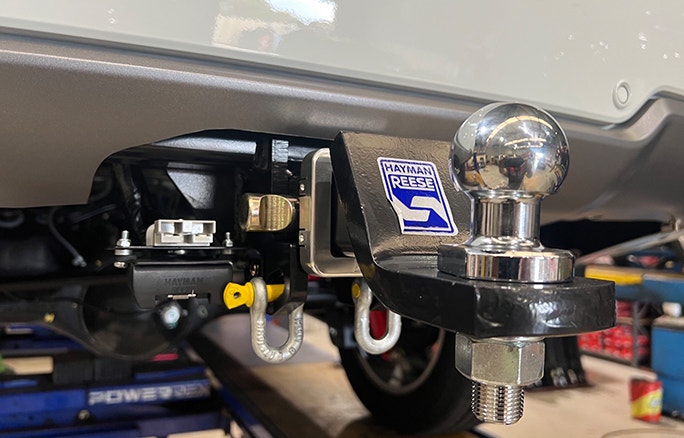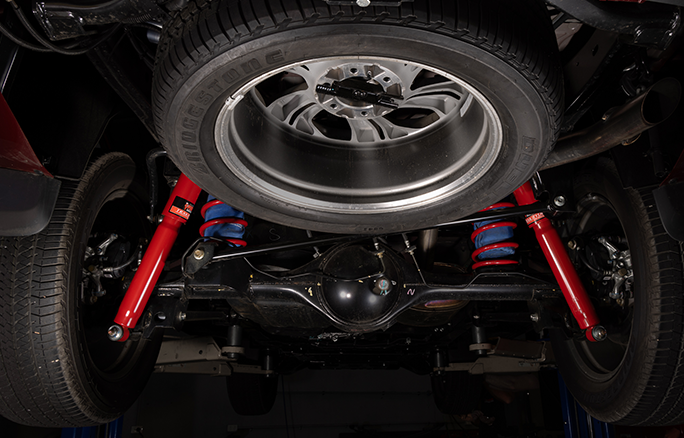Are you setting up your vehicle for towing or load-carrying? Here is what you need to know!
When preparing your vehicle for towing or load-carrying, it’s important to know what steps you need to take in order for your next adventure to be not only safe and legal but also optimal for the sake of performance and efficiency of your vehicle. Drivers must check their compliance and adhere to their vehicle's maximum weight ratings to ensure they don’t overload their vehicle.
Check your vehicle’s Towing Capacity
Vehicle towing capacity is the maximum trailer weight a vehicle is legally able to tow as stated by the original manufacturer. The weight is broken down into brake weight and unbraked weight. The majority of vehicles can tow more weight when the trailer is fitted with an independent braking system. For example, if your vehicle has a braked towing capacity of 3500kg, this is only when the trailer is fitted with a braking system and has an Aggregate Trailer Mass (ATM) of up to 3500kg. Gross Vehicle Mass (GVM) refers to the total weight of the vehicle and includes fuel, passengers, cargo, vehicle accessories and anything else that adds weight such as a trailer. Every vehicle has a GVM rating which is the maximum weight limit of the vehicle. It is important you don’t exceed your vehicle’s maximum Towing Capacity or GVM rating as this can void your insurance and is illegal.




Gross Vehicle Mass (GVM)
Gross Vehicle Mass (GVM) refers to the total weight of the vehicle and includes fuel, passengers, cargo, vehicle accessories and anything else that adds weight such as a trailer. Every vehicle has a GVM rating which is the maximum weight limit of the vehicle. It is important you don’t exceed your vehicle’s maximum Towing Capacity or GVM rating as this can void your insurance and is illegal.
Aggregate Trailer Mass (ATM)
Aggregate Trailer Mass (ATM) is defined as the total weight of the trailer when it is not connected to a vehicle. This can include the weight of the trailer itself and all cargo, equipment, and accessories fitted to or loaded into the trailer. It’s important to factor in any additional weight you may have added to the trailer as cargo or accessories, as the safety and handling of your vehicle could be impacted. Overloading your vehicle with a trailer that is heavier than the maximum towing capacity of the vehicle can result in poor handling, reduced braking effectiveness, and unnecessary wear can occur on the vehicle, as well as risking heavy penalties or voided insurance.




Tow Ball Down Weight
Most tow bars have a maximum down weight rating and the tow ball down weight also has an influence Gross Vehicle Mass (GVM). Most trailers exert roughly 10 percent of their aggregate trailer mass onto the tow ball so if you're towing 3500kg, your tow bar should be rated to 350kgs and 350kgs is also added to your tow vehicle’s GVM. This is important to factor in, as exceeding your GVM or tow ball down weight may affect your insurance and can compromise safety.
Towing Upgrades
Pedders offer a wide range of upgrades in order to make towing or carrying heavy loads safe and legal. Pedders TrakRyder Coil Springs are designed as heavy duty units that provide the precise spring rates needed to support the mass of a heavy four-wheel drive. Standard and raised height Coil Springs are available for most popular four-wheel drive vehicles, and extra heavy duty springs can be specified to compensate for extra weight of accessories such as bullbar, winch, canopy, roof racks and tow bars. Pedders also offer Air Bag Kits which can be inflated to support the additional weight on the vehicle, resulting in a level and more controlled ride. And our GVM+ Upgrades can significantly boost the load-carry capacity and capability of many popular 4x4 and commercial vehicles.



